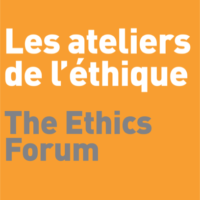
“Housing and Social Justice” (Deadline: 20 January 2025)
We are pleased to announce a Call for Papers for a special issue of Les Ateliers de l’éthique/The Ethics Forum focused on Housing and Social Justice. This special issue follows the recent Housing and Social Justice Conference held in Montreal in May 2024 and aims to further explore the critical issues discussed.
Les Ateliers de l’éthique/The Ethics Forum is dedicated to advancing scholarly understanding of ethical issues in contemporary society, and this special issue seeks to bring together diverse perspectives on the intersection of housing and social justice. We invite submissions that address various aspects of housing and social justice, including but not limited to theoretical essays, empirical research, case studies, and reviews. Contributions from various disciplines including philosophy, sociology, urban studies, political science, ethics, and law are welcome. Submissions can be in either French or English and can be related, without being limited to the following themes:
- Normative housing issues. What does it mean to have “fair” access to housing? Does the state have a duty to provide housing for all? This first line of research examines how housing is thought of in the light of central conceptions of political philosophy and seeks to establish what housing “justice” means. The question is whether access to housing enables a form of freedom or relational equality, or whether access to housing only concerns material conditions. It is as much a question of thinking about the normative implications of a “loss of control over one’s living environment” (Gaudreau, 2020) because of a financialized housing market as it is of using certain tools from theories of justice to imagine or test public policies for access to housing. (King, 2011; Taylor, 2019)
- Private property and housing. Is the right to property compatible with the right to housing in the context of liberal democracies and market economies? Is the right to property the best way to guarantee equality? The aim is to offer an often-overlooked perspective on the confrontation between the right to property and the right to housing. With the aim of going beyond legal debates, this theme will provide a space for thinking about the problem posed by the moral confrontation between these two rights. It will then also be possible to ask whether landlordism complements or contradicts the implementation of positive social measures in the form of social rights protecting housing. This raises the question of whether public policies should encourage access to private property, and whether private property should be the solution favored by states to guarantee equality in housing.
- Housing and home. Is having a place to live the same as having a home? What are the differences between the two experiences? What are the normative and practical implications of such a distinction? Does having a house necessarily mean having a roof over one’s head? The aim is to rethink social relationships as essential elements of the “feeling” of being at home. This axis will also allow us to question the possibility of commercializing this feeling of being at home in a context of increasing commodification of housing. It will also examine the boundaries between concepts such as “shelter”, “roof”, “housing” and “home”, to better understand which characteristics of these components do or do not contribute to housing justice. (Young, 2005)
- Institutions for housing justice. Seeking housing justice also requires the handling of claims by certain institutions dedicated to housing law and the right to housing. What barriers currently limit access to housing justice? What improvements can be made to the institutions that protect access to housing? What forms can organizations that defend housing justice take? Should they be formal? This axis will also be an opportunity to question whether institutions should always encourage access to housing, and what roles these institutions have in maintaining housing injustices.
Les Ateliers de l’éthique/The Ethics Forum accepts a wide range of papers. Some of the options are listed below but you can also find more information about the Journal and its guidelines at: https://www.lecre.umontreal.ca/en/categorie/ateliers_ethique_ethics_forum-en/
Submission Guidelines:
- Research Articles: Up to 9,000 words. These should offer substantive engagement with normative challenges arising in the context of social practices and public policies. Research articles are subject to double-blind peer review by at least two reviewers.
- Review Articles: 5,000-9,000 words. These should offer an extensive overview of recent debates or literatures relevant to the journal’s scope. We particularly welcome French-language surveys of recent debates in Anglophone philosophy and English-language surveys of recent debates in Francophone philosophy. These submissions are subject to double-blind peer review by at least one reviewer.
- Case Discussions and Responses: Case discussions (up to 3,000 words) describe and discuss real-world problems concerning social practices and/or public policy and identify normative questions or approaches that might be suitable for engaging with those problems. Accepted case discussions will be published on the journal’s website, along with an invitation for responses (also up to 3,000 words in length). Case discussions and responses are subject to double-blind review by at least one peer reviewer.
Submissions: eliot.litalien@umontreal.ca
Deadline: By January 20th, 2025
Formatting: Please follow Les Ateliers de l’éthique/The Ethics Forum submission guidelines available on their website: https://www.lecre.umontreal.ca/wp-content/uploads/2014/07/consignes-aux-auteurs-2014_mise-en-page-1.pdf
For any questions, you can contact Alexandre Petitclerc (guest editor) at alexandre.petitclerc@umontreal.ca.



